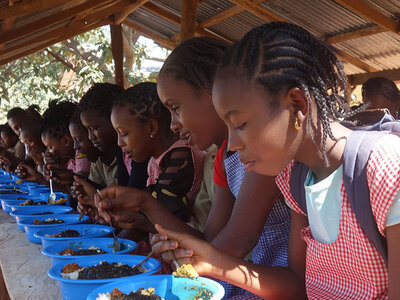Guinea
- 2.9 million
- households are food insecure
- 3.2 million
- children under 5 suffer from stunting
- 7.7 million
- people live in poverty
As Guinea continues to grapple with significant socioeconomic challenges, more than half of its population is experiencing unprecedented levels of poverty and food insecurity, along with alarming rates of malnutrition.
Over 21.8 percent of households struggle with food insecurity, and children under 5 are particularly vulnerable, with 6.1 percent suffering from global acute malnutrition, 24.4 percent from stunting (impaired growth due to malnutrition) and 12 percent being underweight. Smallholder farmers and women in rural areas face heightened vulnerability due to limited access to essential resources and opportunities.
What the World Food Programme is doing in Guinea
-
Emergency
-
WFP provides food assistance and cash transfers to meet the immediate needs of people affected by crises. Over 900,650 of crisis-affected individuals, 49 percent of whom were women, received assistance in the form of food aid and/or substance abuse treatment as part of the emergency intervention in 2023. Additionally, US$335,472 was distributed to emergency-affected populations in the form of cash transfers, to meet their basic food and nutritional needs.
-
Nutrition
-
School meals
-
Resilience building
-
Country capacity strengthening
-
Cash transfers
Guinea news releases
Go to pagePartners and donors
Find out more about the state of food security in Guinea
Visit the food security analysis pageOperations in Guinea
Contacts
Office
Cameroun, Face Cour Suprême, Conakry, République de Guinée
Conakry
Guinea







